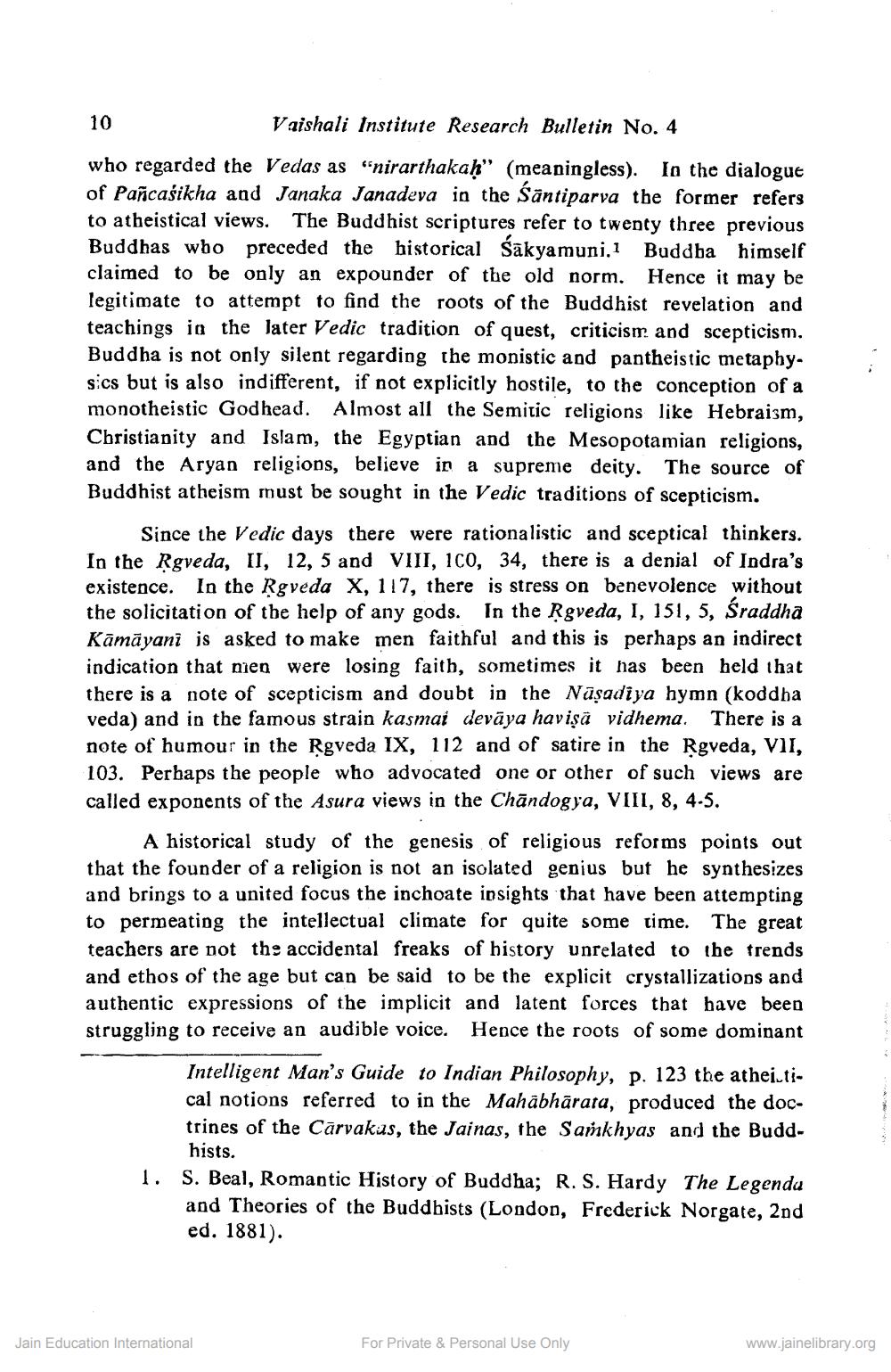________________
10
Vaishali Institute Research Bulletin No. 4
who regarded the Vedas as "nirarthakah" (meaningless). In the dialogue of Pancasikha and Janaka Janadeva in the śāntiparva the former refers to atheistical views. The Buddhist scriptures refer to twenty three previous Buddhas who preceded the historical Sākyamuni.1 Buddha himself claimed to be only an expounder of the old norm. Hence it may be legitimate to attempt to find the roots of the Buddhist revelation and teachings in the later Vedic tradition of quest, criticism, and scepticism, Buddha is not only silent regarding the monistic and pantheistic metaphysics but is also indifferent, if not explicitly hostile, to the conception of a monotheistic Godhead. Almost all the Semitic religions like Hebraism, Christianity and Islam, the Egyptian and the Mesopotamian religions, and the Aryan religions, believe in a supreme deity. The source of Buddhist atheism must be sought in the Vedic traditions of scepticism.
Since the Vedic days there were rationalistic and sceptical thinkers. In the Rgveda, II, 12, 5 and VIII, 1CO, 34, there is a denial of Indra's existence. In the Rgveda X, 117, there is stress on benevolence without the solicitation of the help of any gods. In the Rgveda, 1, 151, 5, Sraddha Kāmāyani is asked to make men faithful and this is perhaps an indirect indication that nen were losing faith, sometimes it has been held that there is a note of scepticism and doubt in the Nāşadiya hymn (koddha veda) and in the famous strain kasmai devāya havişā vidhema. There is a note of humour in the Rgveda IX, 112 and of satire in the Rgveda, VII, 103. Perhaps the people who advocated one or other of such views are called exponents of the Asura views in the Chāndogya, VIII, 8, 4-5.
A historical study of the genesis of religious reforms points out that the founder of a religion is not an isolated genius but he synthesizes and brings to a united focus the inchoate insights that have been attempting to permeating the intellectual climate for quite some time. The great teachers are not the accidental freaks of history unrelated to the trends and ethos of the age but can be said to be the explicit crystallizations and authentic expressions of the implicit and latent forces that have been struggling to receive an audible voice. Hence the roots of some dominant
Intelligent Man's Guide to Indian Philosophy, p. 123 the atheitical notions referred to in the Mahābhārata, produced the doctrines of the Carvakas, the Jainas, the Sankhyas and the Buddhists. S. Beal, Romantic History of Buddha; R. S. Hardy The Legenda and Theories of the Buddhists (London, Frederick Norgate, 2nd ed. 1881).
1.
Jain Education International
For Private & Personal Use Only
www.jainelibrary.org




